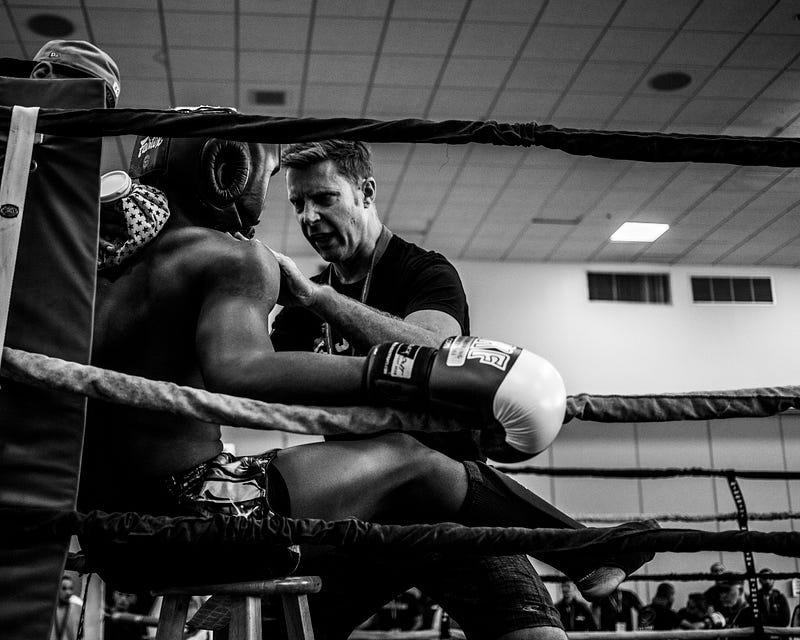“Four votes for John,” said one of my four co-founders.
It was 1997, and we were deciding who among us would be the titular head of our first venture. It was a simple ceremony, no cryptic puffs of smoke through an old chimney.
While I was happy to have won the election — I wanted to win — I had no idea what it meant to be a CEO.
It wasn’t until we received our first check from professional investors that everything changed. They saw me as more than a figurehead; I was the chief executive officer.
I suddenly felt this overwhelming responsibility for their capital. I became anxious. “I have no idea what I am doing,” I thought.
“What is my job? What is a CEO supposed to do? What are my duties?” I needed to understand.
The next day, I searched the Cornell alumni directory for heads of tech companies who lived in Boston. I called each one and begged them to give me thirty minutes of their time.
The few that agreed shared precious nuggets of advice that have stayed with me ever since.
Today, 20 years later, I have the opportunity to advise several first-time founders leading high-growth start-ups. They each invariably face the same “holy shit” moment I did back then.
I now happily pay forward the gift I received from those gentlemen nearly two decades ago.
Here is the advice I give every first-time founder and CEO:
1. Take Charge
One year after I sold my first venture, I had the unique pleasure to hear general Norman Schwarzkopf speak. He is the general known for his leadership in the US-Iraq war, aka “desert storm.” It was the first war that was televised 24×7 on CNN. I watched it every evening while in college.
After the end of the war, the general hit the speaker circuit. One of his stops was the president’s club event at our new parent company, BEA Systems. In his talk, he shared his leadership principles. One stuck in my mind like peanut butter on toast.
“When in charge, take charge,” he said.
Newbie CEOs are shy about making decisions. They weigh their options indefinitely. And, they hold their breath for consensus among their team.
Take charge!
You are now the CEO. It is up to you to make decisions and make them quickly to keep your business moving. You will make mistakes.
Mistakes are unavoidable. Don’t let the fear of making them prevent you from making a call.
2. Be Laser Focused
One of my favorite pieces of advice came from a serial entrepreneur. He was one of those alumni in Boston I mentioned earlier. He said, “if you forget everything I said to you, remember this… To succeed you must be laser focused!”
It’s so true.
To succeed you must be laser focused. An unwavering focus is a skill that you must master as a CEO. The market, your employees, your investors, even your loved ones will pull you in different directions.
Being focused comes from being clear about your company’s “why”. Why do you exist? What is your core purpose for being? Without it, you will be lost.
In Patrick Lencioni’s book, The Advantage, he explains that one of the keys to the success of any company is the achievement of clarity. It means answering six important questions. The first one is, “why?”
It takes practice and concentration.
As soon as you take the helm, get clear. Then focus.
3. Read A Lot
Read as much as you can. Spend at least 1–2 hours per day reading. Charlie Munger, Warren Buffet, Bill Gates, Sheryl Sanberg, and Jeff Bezos all do it. You should too.
Make it a habit. Put it in your calendar, create a tickler, or whatever tool helps you get things done.
What type of books should you read?
Read books about:
- Forming great, healthy teams and getting clarity around your purpose. My favorites include Patrick Lencioni’s books, like The Advantage.
- What it’s like to run a high-growth tech startup. The best choices here include The Hard thing about hard things and Leading at the speed of growth
- Creating a lasting and magnetic culture. A big favorite is The Culture Code.
- Everything SaaS. My recent read is called Subscribed.
- Books about the pain of being a CEO. An old favorite on being a B2B CEO is How to Castrate a Bull.
- Marketing, cognitive bias, technology evolution, human behavior, and storytelling. (There are some great ones out there and I recently reviewed some my annual book review.)
(Slow reader? I struggled for years to reach my target cadence. I have a trick for you here.)
“The hard thing isn’t setting a big, hairy, audacious goal. The hard thing is laying people off when you miss the big goal.” — Ben Horowitz, The Hard Thing About Hard Things.
4. Equate (the Pain of Making) Mistakes with Learning
I have made countless mistakes as a CEO. I have made bad hires. I have lost deals. I have made bad deals. I have underestimated competitors. I have failed to show compassion towards an employee. I have fought with my co-founders. I have misjudged the market I was in. I overinvested when I should have scaled back. I have sold too soon. I have sold too late. I have so many more.
Many of these failures were like a world-ending moment in my life as a CEO. However, each one has taught me more than I could ever have imagined.
The best CEOs in the world have a long list of mistakes lining their paths to success. Embrace your mistakes. Write them down. Take the time to reflect on them. Use them to evolve yourself and your craft.
(I share a recipe on how to do this here.)
5. Live with your customers. Love them.
I once had a customer — during a negotiation — take his shoes off, during a meeting, and rub foot fungus cream in between his toes. I must say I was shocked, but it did not deter me from spending time with him once a quarter if not more.
Why?
Because your customers are the answer to everything. Want to know how to improve your service? Ask your customers. Wondering what your competitor has that you don’t? Ask your customers. Not sure if your marketing campaign is hitting the mark? Ask your customers.
Anything you need to know to help drive your business forward can be found by walking the halls of your customers and experiencing their business realities first hand. This may sound like a B2B focused piece of advice but it is not. Even in B2C or B2A (any), connecting with your customers is gold.
As CEO, I recommend you spend at least one day a week (or at least 20% of your time) talking to your customers.
6. Find a Role Model
My first real exposure to a chief executive officer was when I started my career as an engineer at Intel. I was in the cafeteria in the company’s Hillsboro, Oregon location. Andy Grove, the CEO at the time, was delivering his quarterly town hall meeting.
I don’t why, but that is when I knew I really wanted to be a CEO. And, not just any CEO. I wanted to be him.
In that one hour meeting, I saw a leader who was extremely focused, clear, gritty, compassionate and driven to win. This was in 1995. Andy went on to lead Intel and the PC industry through some of its greatest challenges and transformations.
He is known as the godfather of Silicon Valley. And, he is my role model.
Who is yours?
If you don’t have a role model, I encourage you to find one.
Who do you want to be like?
Pick someone who represents an aspirational goal that you have for yourself. Andy was mine. His grit, his management style, his approach to adversity, his ability to learn, his resilience, and his passion for his craft. He was who I wanted to be back in 1995.
And, He is still who I want to be now.
It need not be an obviously famous CEO like Bezos, Musk or Jobs. It should be someone you really relate to and that is ideally within reach. Spend time with this person if you can. Study them. Use their story to create goals for your own growth.

7. Get a Coach
Some of the best athletes in the world have a coach. Someone to help them practice. Someone to root for them when they are down. Someone to help them unlock their raw talent and hone it for the win. And, just someone to talk to about things on their mind.
CEOs need coaches, too. And, whether you know it or not, many of the best in the world (Steve Jobs, Bill Gates, Eric Schmidt) all had a coach.
Your coach’s purpose is to help you see yourself (and your business) with an impartial eye. They can see things about you that you can’t see. They help you improve on your strengths and find your weaknesses. They tell you like it is.
Coaches have seen your movie before. They know things you don’t know and help you avoid making unoriginal mistakes.
(If you’d like help finding a coach leave a comment below.)
8. Join a Community
If you truly want to be a better CEO, join a peer group. Being a CEO is a very lonely job at times. In these forums, leaders of companies of all sizes get together and share their challenges and get sound advice.
I joined my first one nearly a decade ago. It was the best decision I ever made. I finally had a place where I could work through some real challenges in my business and personal life. I could speak freely, and vent when I needed to.
More importantly, it gave me time away from the business to think strategically. I also learned so much about my business by looking at others in my peer group.
There are a number of peer groups out there (YPO, Vistage, etc.). One of the best is quietly based in Boston and probably responsible for some of the best companies in the northeast.
No entrepreneur is born knowing how to be a CEO. But, the moment you are anointed one, you will begin a journey that will change you forever. You may not have time to crack open your alumni directory as I did. Hopefully, these nuggets get you going.
Good luck!


